|
James is co-author on a paper 'The biogeography of relative abundance of soil fungi versus bacteria in surface topsoil' published in Earth System Science Data investigating the fungal to bacterial ratio in terrestrial settings globally.
Yu K, Hoogen J, Wang Z, Averill C, Routh D, Smith G, Drenovsky R, Scow K, Mo F, Waldrop M, Yang Y, Vries F, Bardgett R, Manning P, Bastida F, Baer S, Bach E, García C, Wang Q, Ma L, Chen B, Ye J, Teurlincx S, Heijboer A, Bradley J, Crowther T. (2022) The biogeography of relative abundance of soil fungi versus bacteria in surface topsoil. Earth System Science Data. doi: 10.5194/essd-14-4339-2022
0 Comments
We are looking for a PhD student to join the group! This is a fully-funded 3-year position based in the Bradley lab in London, UK.
The role of the atmosphere in shaping and sustaining microbial communities on glaciers The atmosphere forms a bridge between Earth’s major biomes, linking terrestrial, aquatic, and glacial systems. The continual exchange, transport and dispersal of microorganisms between the atmosphere and it’s adjacent habitats shapes these environments via processes that are not yet fully understood. The cryosphere shares many of the same characteristics as the atmosphere, for example: low substrate availability, freezing temperatures, and high UV radiation. This PhD project will examine the ecological links between the atmosphere and the cryosphere – in particular, glacier surfaces in polar regions. Using state-of-the-art genomic and biogeochemical techniques, the student will investigate the role of the atmosphere in shaping microbial communities in snow and ice habitats, as well as in sustaining them by providing sources of energy. There will be opportunities for fieldwork in Svalbard and/or other polar environments to collect atmospheric samples, as well as samples of snow and glacier ice for analyses. The student will collaborate across multi-disciplinary teams in London (Queen Mary University of London and the Natural History Museum) and internationally (Australia, Canada, and the USA), and be embedded into a wider project that investigates the atmosphere as a microbial ecosystem. This PhD project would suit a student with interests in environmental microbiology, biogeochemistry and polar environments. Main supervisor: James A. Bradley Co-supervisors: Anne Jungblut, Natural History Museum, UK Chris Greening, Monash University, Australia Jackie Goordial, University of Guelph, Canada Elizabeth Trembath-Reichert, Arizona State University, USA Location: Queen Mary University of London, and The Natural History Museum, London, UK. Application Deadline: 3rd October 2022 Start-date: January 2023 or as soon as possible thereafter. How to apply: To apply, please click here: https://mysis.qmul.ac.uk/urd/sits.urd/run/siw_ipp_lgn.login?process=siw_ipp_app&code1=RFQM-L8ZM-01&code2=0014 Your application must include a Personal Statement (2 pages max), Research Proposal (1 page max), Curriculum Vitae (2 pages max), and the names and contact details of up to three academic references. In your personal statement, please identify your research interests, outline relevant skills, training, experience and qualifications, and explain why you are interested in this programme and how it fits your career development plans. In your research proposal, please briefly outline how your research will address one or more of the themes described in the project summary above. Please also email James (james.bradley@qmul.ac.uk) prior to the deadline to confirm your intention to apply. James is in Greenland with Donato Giovannelli and Matteo Selci (University of Naples Federico II) for their INTERACT-funded project GHOST: Greenland Homeothermic Springs. Below is an overview of the trip written by Matteo. Today we took a day off so I thought it would be a good idea to share with you what we are doing here in Greenland. We are at the Arctic Station in the south of Disko Island. Our main purpose here is find and sample as many geothermal springs as possible. But why Disko Island and why geothermal springs? Disko Island is part of larger region where a vast amounts of volcanoes erupted ~60 million years ago. This explain why Disko Island and an Eastern region of Greenland are mainly composed by basalts, a type of rock formed after rapid cooling of lava. Basaltic rocks are everywhere here, and when you travel along the coastline it is possible to appreciate these incredible structures. In particular, you can observe multiple horizontal lines that represent basaltic layers deposited eruption after eruption.
“The Arctic is a beautiful but unforgiving environment. Climate change is an ever-felt presence here at the top of the world, and whilst the Arctic is the first to feel its impacts, the rest of the world waits perilously in the firing line.”
James wrote a piece for Arc’teryx describing some of the science and personal sentiments of his work in the Arctic – with a focus on thawing permafrost. Thanks Arc’teryx for your backing, and for the feature! Click here to read the piece! James is lead-author on a new paper in Frontiers in Microbiology on the characteristics of global marine sediments as a microbial habitat. Following our 2020 Science Advances study, we use global models to assess how variations in marine sediment physicochemical properties impact microorganisms, organic carbon, bioenergetics and cell power availability on a global scale.
Bradley J, Arndt S, Amend J, Burwicz-Galerne E, LaRowe D (2022) Sources and fluxes of organic carbon and energy to microorganisms in global marine sediments. Frontiers in Microbiology. 13:910694. doi: 10.3389/fmicb.2022.910694 James is in Svalbard with Ian Stevens and Eva Doting (Aarhus University) to study the sources, sinks and viability of microbes on the surface of High-Arctic glaciers. The project is funded by INTERACT (EU Horizon-2020).
How can we detect and preserve biological signals from glaciers and other remote field environments?
In our new paper, published in Frontiers in Microbiology and led by Chris Trivedi, we tested the efficacy of different DNA & RNA preservation methods on glacier snow and ice samples. Trivedi C B, Keuschnig C, Larose C, Rissi D V, Mourot R, Bradley J, Winkel M, Benning L G (2022) DNA/RNA Preservation in Glacial Snow and Ice Samples, Frontiers in Microbiology, 13:894893. doi:10.3389/fmicb.2022.894893 Photo: Laura Halbach Our understanding of glacier ecosystems relies largely on sampling and field campaigns during spring and summer. In this paper, published in Frontiers in Microbiology and led by Matthias Winkel, we look at microbial communities on snow and ice under the midnight sun (i.e. summer) and the dark period (i.e. winter) in Iceland.
Winkel M, Trivedi C B, Mourot R, Bradley J, Vieth-Hillebrand A, Benning L G (2022) Seasonality of Glacial Snow and Ice Microbial Communities, Frontiers in Microbiology, 13:876848. doi: 10.3389/fmicb.2022.876848 Photo: Dagmara Wojtanowicz James is Co-PI on a new project awarded funding from Human Frontier Science Program to study the habitability of the atmosphere. The project, titled 'The atmosphere: A living, breathing ecosystem?' seeks to address whether the atmosphere is simply a passive dispersal medium for microorganisms, or if the atmosphere exhibits structure and activity characteristic of a true ecosystem (i.e. containing active resident and transient microorganisms that influence biology, chemistry, and climate globally). The project, involving Co-PIs Jackie Goordial at the University of Guelph (Canada), Chris Greening at Monash University (Australia), and Elizabeth Trembath-Reichert at Arizona State University (USA), integrates ultra-sensitive single-cell activity measurements, genomic approaches, and planetary-scale modelling to test whether the atmosphere is ecologically structured and metabolically active.
We will soon be advertising postdoctoral and graduate student opportunities associated with this grant - watch this space! James is Co-PI on a new project WAVES, which has been awarded funding from INTERACT under EU Horizon 2020. With collaborators Ian Stevens and Eva Doting at Aarhus University, Denmark, the team will the investigate the sources, viability and abundance of microbes, and concentrations of nutrients and major ions which reside on and supply glacier ice surfaces, with fieldwork in Svalbard planned for summer 2022.
|
Archives
March 2024
Categories |
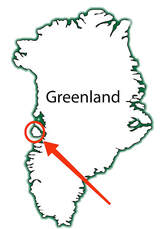
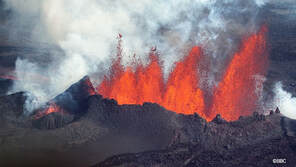
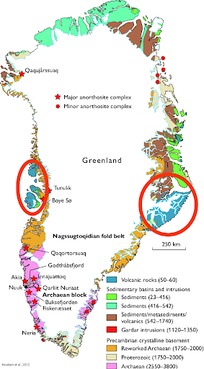
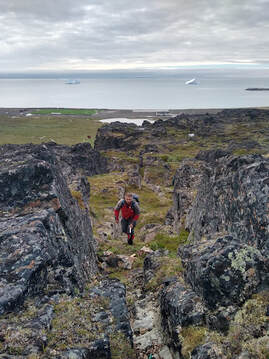
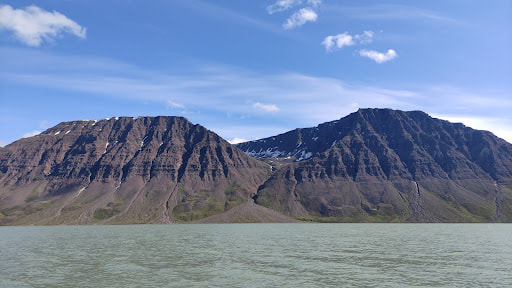
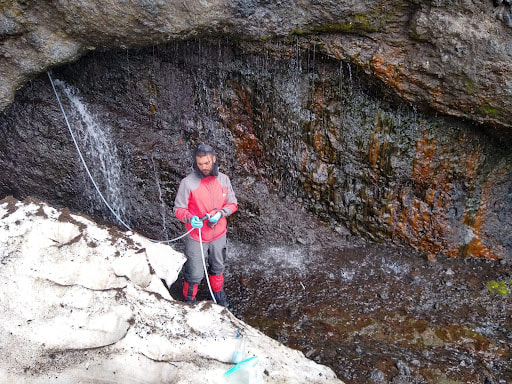
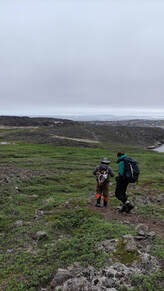
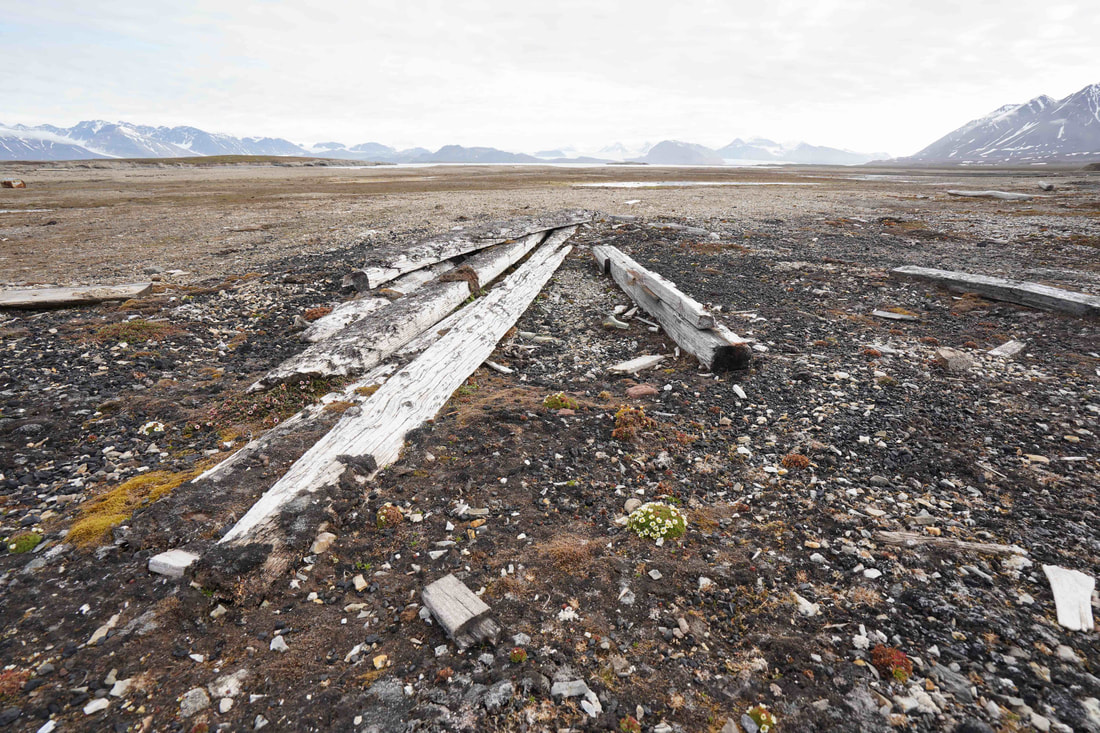
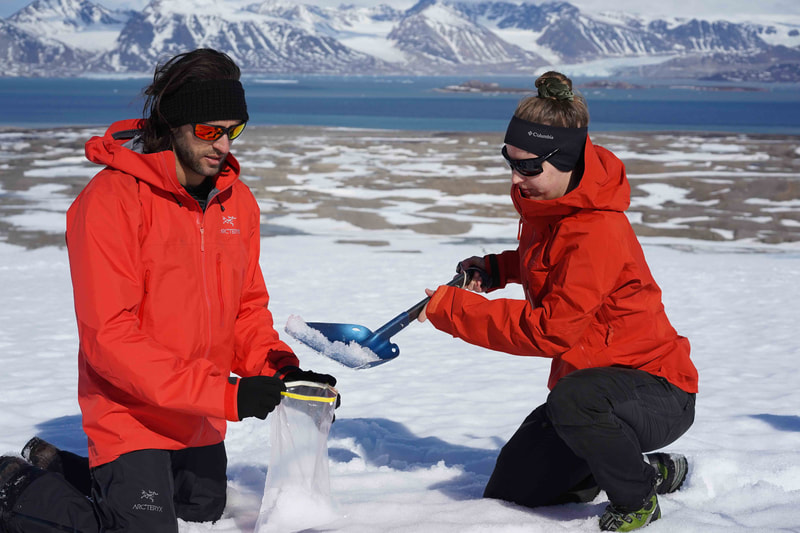
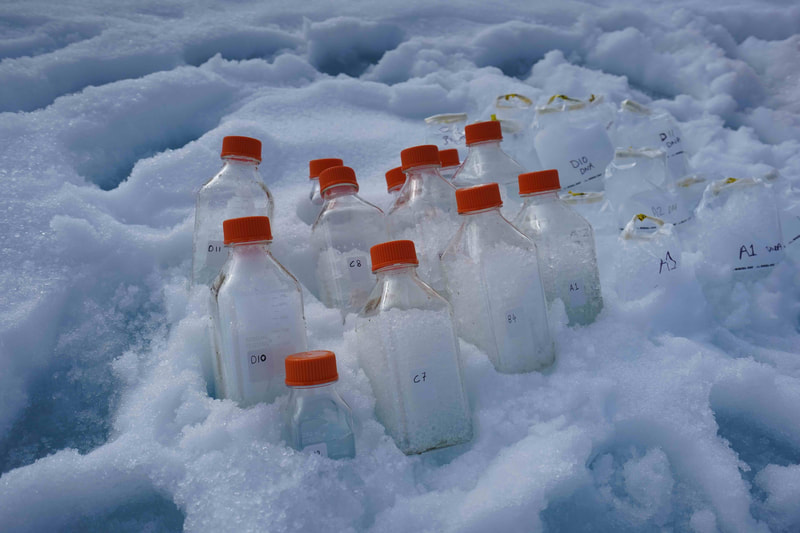
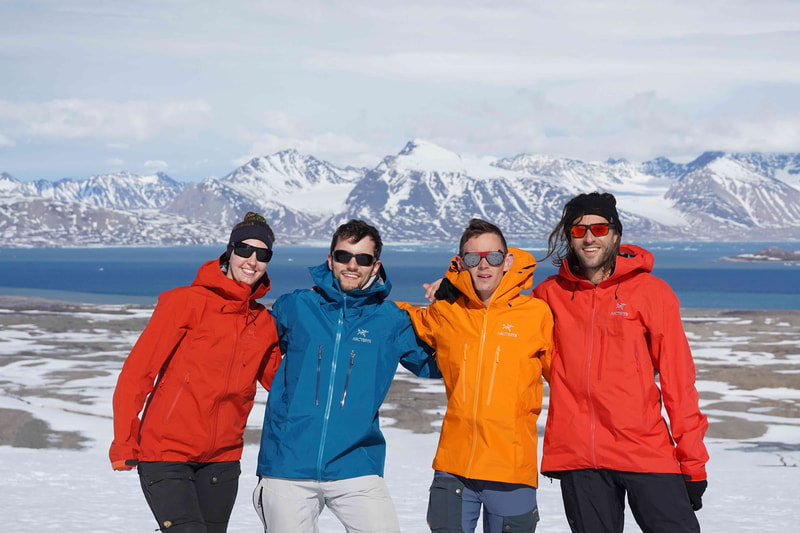
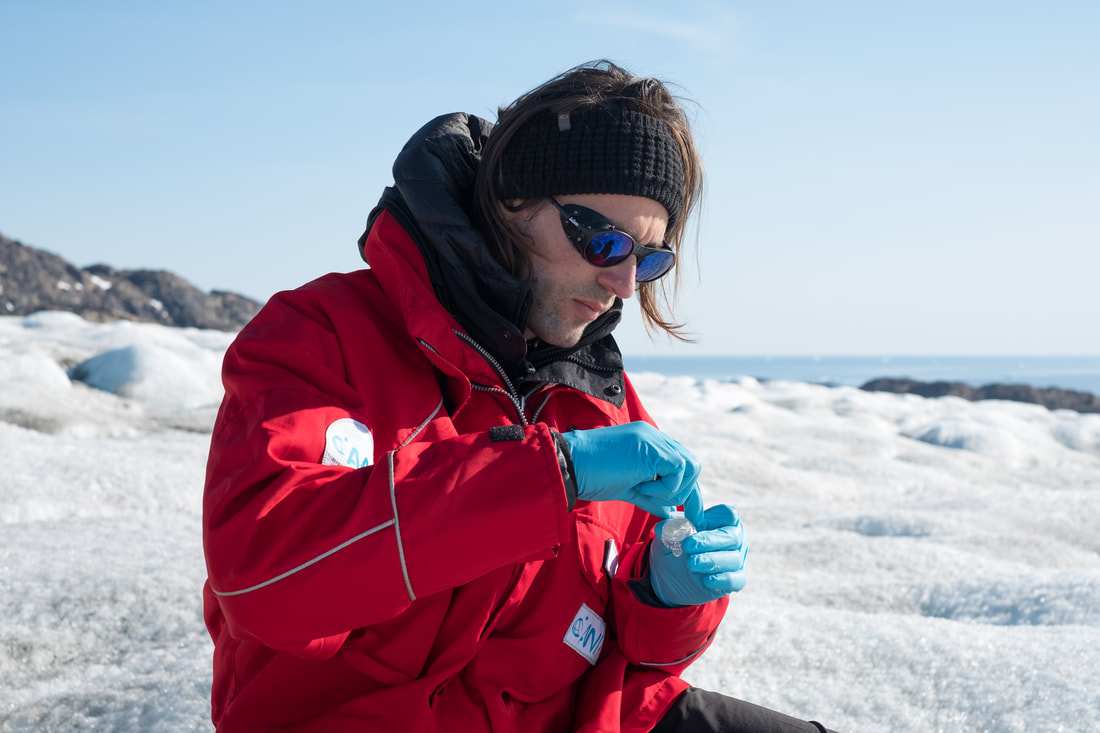
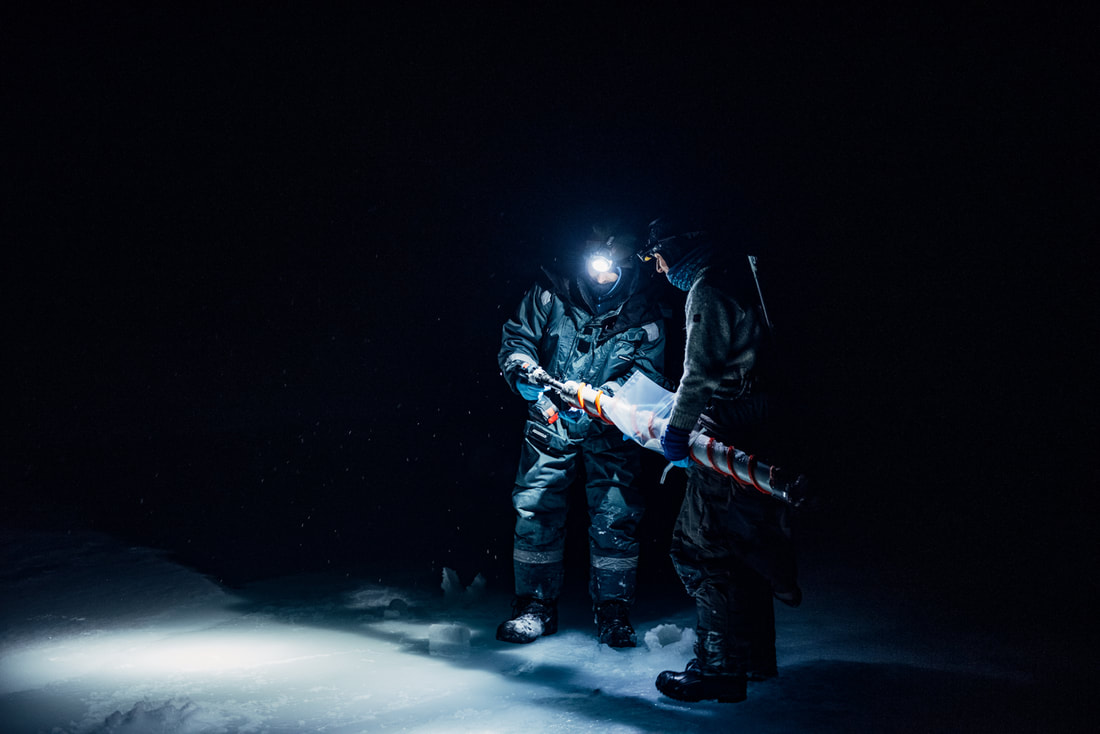
 RSS Feed
RSS Feed
